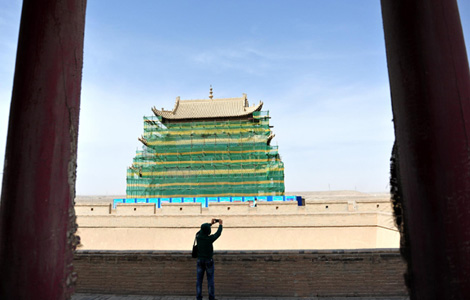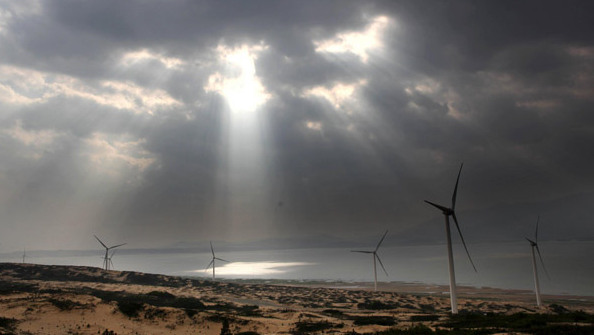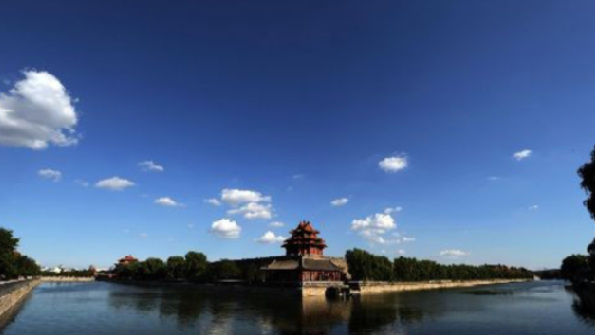Car rules to help control smog
Updated: 2013-01-17 01:54
By Wang Qian in Jinan, Zheng Jinran in Shijiazhuang and Zheng Caixiong in Guangzhou (China Daily)
|
|||||||||||
Jinan, capital of Shandong province, implemented a temporary rule on Wednesday requiring drivers to use cars on alternate days, as heavy smog continued to shroud many parts of the country.
The regulation, which depends on whether the last number of the license plate is even or odd, only applies from 7 am to 7 pm.
Anyone violating the rule will be asked to stop using his car and see his violation recorded by traffic police. But no fines will be imposed.
The police didn't say when the rule will be scrapped.
Heavy smog and haze have shrouded Jinan since last week. Monitoring data showed the air quality index in most parts of the city on Monday reached 500, the maximum pollution level, topping the list of the day's 10 most air-polluted cities in China, which was released by the Ministry of Environmental Protection.
"Vehicle emissions are one of the main pollutants, as the number of licensed vehicles in the city rose by 173,800 to almost 1.4 million last year," said Li Baiqiang, an official with the Jinan vehicle management bureau.
People are not happy with the rule because it was announced just a day before it was put into effect.
Xu Zhenli, a 25-year-old office worker, called it "a nightmare" to elbow her way through large crowds at the bus station. "More public buses should be added before the rule is put into effect," Xu said.
Shijiazhuang, the capital of Hebei province, which neighbors Beijing, saw its air quality index reach 500.
By 4 pm on Wednesday, 21 flights had been canceled and 22 delayed in the city because of poor visibility. The thick smog cut it to less than 200 meters.
People who have to work outdoors also suffer.
Zhao Changhai, a 58-year-old cleaner, said he has to pause for seconds before taking a step, worrying that he will be hit by bicycles, especially in the morning rush.
Shijiazhuang has banned up to 30 percent of its government vehicles from the road.
Inversion traps air
A meteorological phenomenon called temperature inversion has been the main cause of Guangzhou's poor air quality in recent days, an official said
A cold front will help disperse the pollutants starting on Thursday, said Huang Zuzhao, an official from the environmental monitoring center of the Guangzhou Environmental Protection Bureau.
According to the bureau, 24 out of its 29 air quality monitoring stations indicated the southern metropolis had air pollution on Tuesday.
"Usually, the higher elevations have lower temperatures. That helps the air move quickly from lower to higher areas," said Huang. "But when a temperature inversion appears, the higher elevations have higher temperatures. So it prevents air from quickly floating from the lower areas to the higher sky."
The inversion is usually caused by urban heat islands where many cement skyscrapers stand, Huang added.
Contact the writers at [email protected]
Related Stories
Limit car use to clear air pollution 2013-01-16 19:58
Pollution triggers breathing woes 2013-01-16 08:04
Pollution spike boosts shares 2013-01-15 15:39
Pollution is a crisis for public health 2013-01-15 17:25
Cold front dispersing Beijing smog 2013-01-16 14:52
Transparency seen through smog 2013-01-16 04:55
- Integrity vital for China's art auction market
- Commerce official upbeat over consumption
- Ministry says exporter confidence improves
- Most Chinese cities see higher home prices
- China sees slower FDI inflow in Q1
- Amway set for another Taiwan visit
- Bear bile industry gets bitten by legal action
- Huaxi sees tourism as driver for future growth









